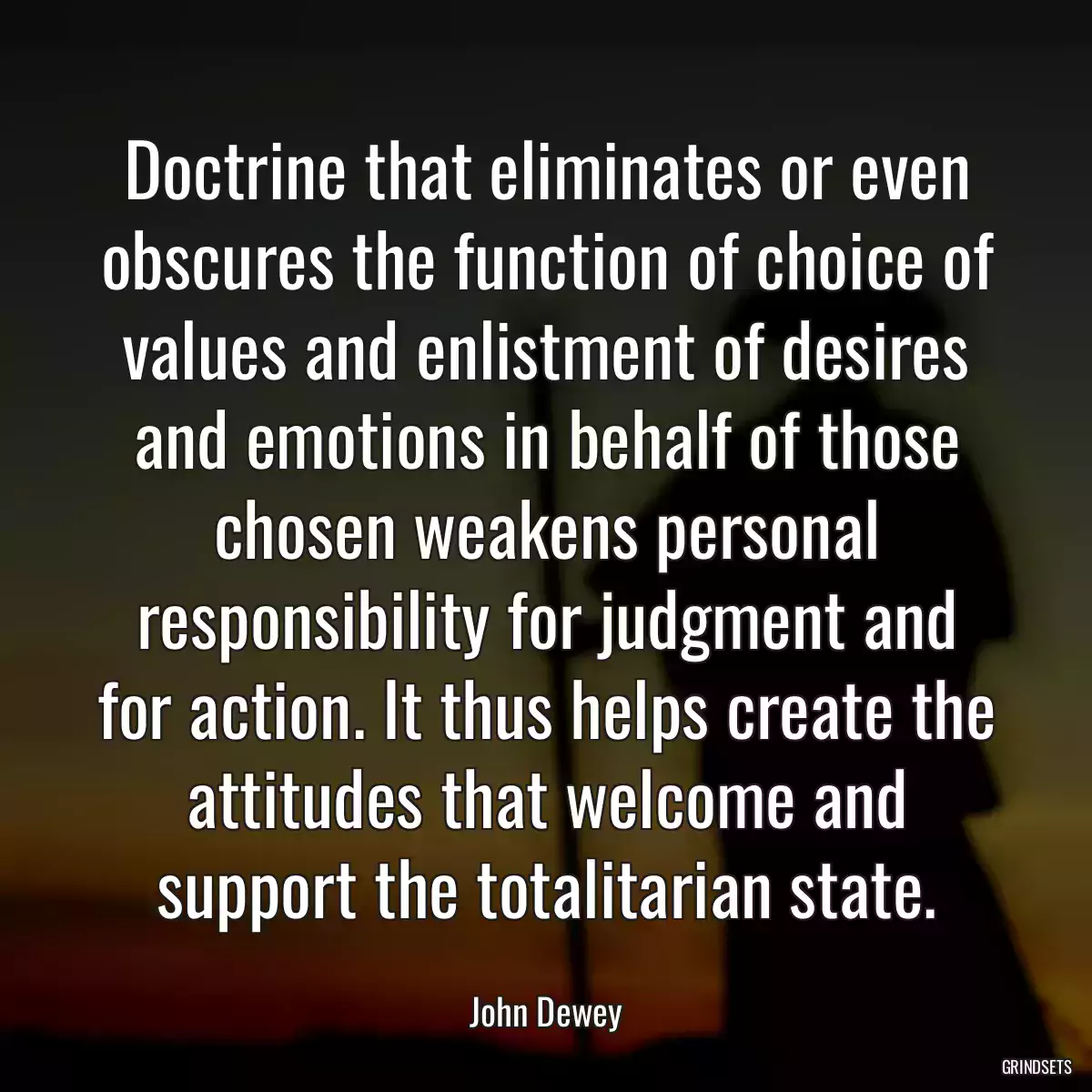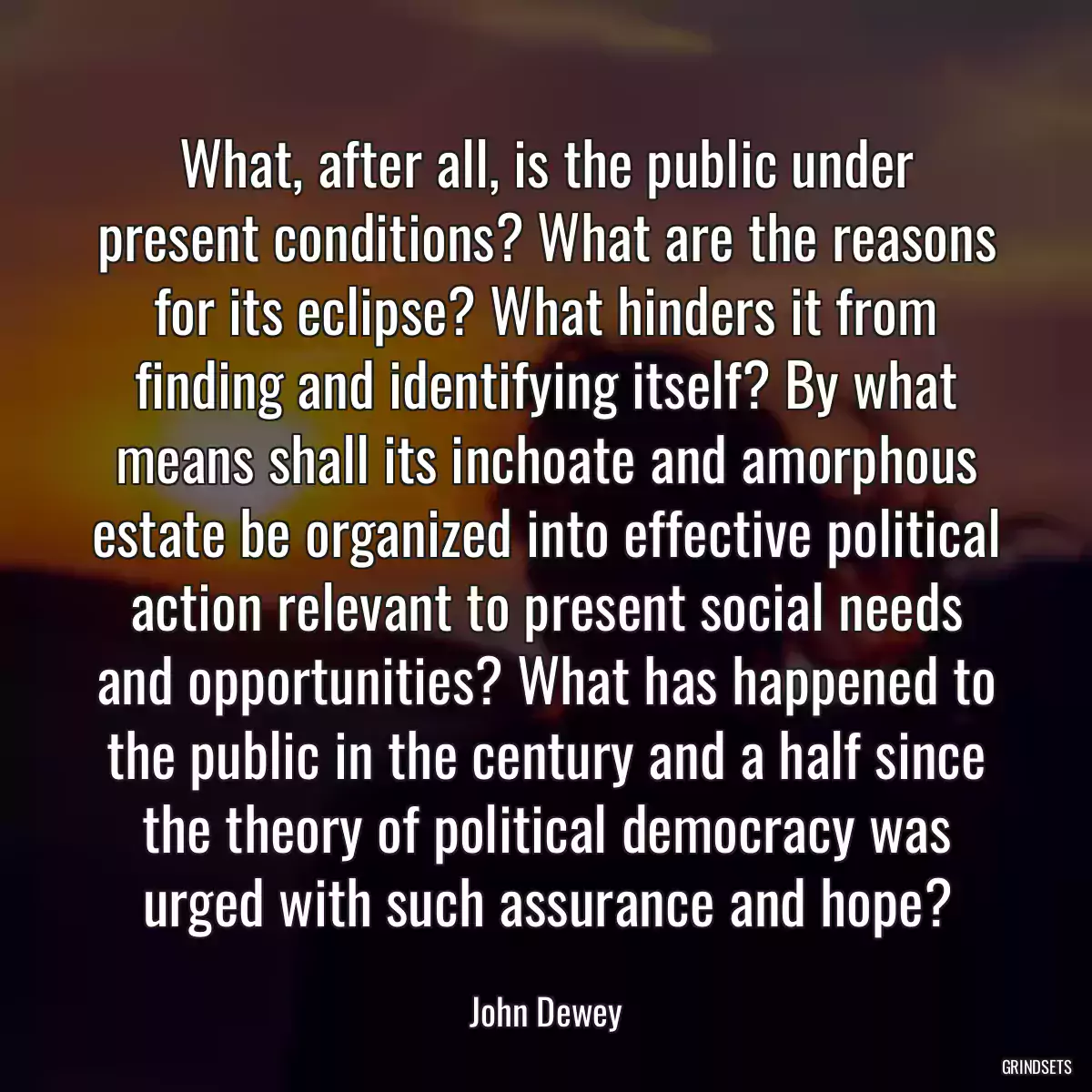
Quotes John Dewey - page 5
Find dozens of John Dewey with images to copy and share.

The demand for liberty is a demand for power, either for possession of powers of action not already possessed or for retention and expansion of powers already possessed.
No man's credit is as good as his money.
Giving and taking of orders modifies actions and results, but does not of itself effect a sharing of purposes, a communication of interests.
You may also like
Thinking and feeling that have to do with action in association with others is as much a social mode of behavior as is the most overt cooperative or hostile act.
Even dogs and horses have their actions modified by association with human beings; they form different habits because human beings are concerned with what they do.
Good manners come, as we say, from good breeding or rather are good breeding; and breeding is acquired by habitual action, in response to habitual stimuli, not by conveying information.
A response is not just a re-action, a protest, as it were, against being disturbed; it is, as the word indicates, an answer. It meets the stimulus, and corresponds with it.
Those engaged in directing the actions of others are always in danger of overlooking the importance of the sequential development of those they direct.

What, after all, is the public under present conditions? What are the reasons for its eclipse? What hinders it from finding and identifying itself? By what means shall its inchoate and amorphous estate be organized into effective political action relevant to present social needs and opportunities? What has happened to the public in the century and a half since the theory of political democracy was urged with such assurance and hope?
The future of religion is connected with the possibility of developing a faith in the possibilities of human experience and human relationships that will create a vital sense of the solidarity of human interests and inspire action to make that sense a reality.
Purposeful action is thus the goal of all that is truly educative.
Things gain meaning by being used in a shared experience or joint action.
Modern life means democracy, democracy means freeing intelligence for independent effectivenessthe emancipation of mind as an individual organ to do its own work. We naturally associate democracy, to be sure, with freedom of action, but freedom of action without freed capacity of thought behind it is only chaos.
Even when a person is frightened by threats into doing something, the threats work only because the person has an instinct of fear. If he has not, or if, though having it, it is under his own control, the threat has no more influence upon him than light has in causing a person to see who has no eyes.